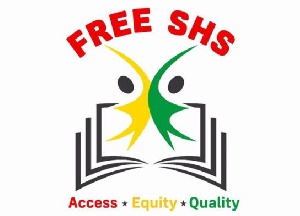The Public Interest and Accountability Committee (PIAC) has warned against corruption in implementing the Free SHS policy due to a lack of records on value of goods supplied to recipient schools.
In a report on Free SHS by the CSO, it came to light that the lack of transparency could lead to cost manipulations which pose a significant corruption risk to the system that was introduced by government about three-year ago, and has increased access to education at the high school level.
According to the PIAC report – which is aimed at obtaining first-hand information on progress of the policy’s implementation, challenges and opportunities – there is completely no ‘cost of products purchased information’ to the schools, which makes it difficult to complete the school accounts; a situation that provides fertile ground for breeding corruption.
In addition, incidences of poor quality and unwholesomeness of some supplies, delays in supply of food and other items, as well as under- or over-supply of some food items and provisions were pretty widespread across the country.
The Committee, in 2018 and 2019, undertook the monitoring of Senior High Schools under the Free SHS Programme and covered 51 schools across eight regions: comprising the Ashanti, Brong Ahafo, Central, Greater Accra, Northern, Upper East, Upper West and Western Regions.
In relation to funding or budgetary allocations, the report indicated that some schools experienced delays in receipt of funds; and also, sometimes funds are transferred in tranches within or across two terms.
“About 85 percent of the schools visited had to rely on funds from the non-Free SHS students to cater for all streams of students until funds are disbursed from the Free SHS Secretariat. If this is not addressed, it will impact negatively on the running of schools when the programme is running at full-steam,” the report said.
The report again confirmed a critical challenge to the Free SHS programme that has received a lot of public outcry since start of the programme, which is inadequacy of infrastructure and equipment for academic works.
“The majority of schools visited had insufficient classrooms, beds, labs and equipment; poor or inadequate staff quarters; prevalence of bed-bugs; lack of infirmaries – and where they exist, there are no qualified nurses to man those facilities.
“A case in point was when the PIAC team arrived just in time to save a student who had just had an asthma attack in one of the schools, with no infirmary and no vehicle to convey the student to a health facility,” the report indicated.
While the Ghana Education Service’s (GES) moratorium on the operations of Parent Teacher Associations (PTAs) may have been well-intended, the report noted, this has deprived schools of the additional infrastructure that the PTAs traditionally provided – with most PTA projects abandoned in the majority of schools.
Recommendations
In the report, PIAC strongly recommended full transparency in the delivery of supplies to schools; and in particular the Buffer Stock Company (BSC) must ensure that all goods supplied are accompanied by advice on the value and quantity of those goods.
The Committee, also recommended that vigilance be encouraged on the part of school authorities in monitoring the quality of supplies, such as inspecting the expiry dates among others. This, it said, will prevent the suppliers from using the schools as dumping grounds.
Again, it proposed that in order to avoid the recurrence of over- and under-supply of food items, supply of food items by the Buffer Stock Company should be based on orders from the schools. “Supply contracts for uniforms and house-vests should be given out early enough to forestall delays,” it stated.
Furthermore, PIAC urged government to ensure that disbursements to the schools are done expeditiously as the non-free SHS students phase out – to avoid closure of the schools and disruptions to the academic calendar.
“Technical and Vocational Schools should be adequately resourced with the necessary equipment and teaching materials,” it said.
- Mahama is a threat to Free SHS – Miracles Aboagye
- Education Ministry honours Minister on 60th birthday
- Free SHS: Every sensible person will opt for a review – Prof. Kwabena Frimpong-Boateng
- I hate Free SHS more than I hate Satan - Blakk Rasta
- 3 Free SHS graduates emerge best WASSCE students in West Africa
- Read all related articles













